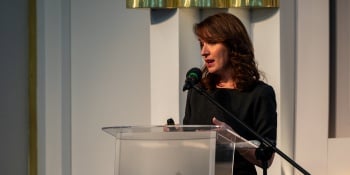Published: 22.01.2024

- The UN Special Rapporteur is preparing a report on academic freedom and freedom of expression in educational institutions.
- The report is to be presented at the 56th session of the UN Human Rights Council in June.
- The Ordo Iuris Institute has submitted its opinion on the matter.
- The Institute's experts pointed out that academic freedom in Poland is protected by both constitutional and statutory provisions.
UN Special Rapporteur on the Right to Education Farida Shaheed is preparing a report on academic freedom and freedom of expression in educational institutions. The aim of the report is to examine the existing legal framework and normative content of academic freedom as a human right and freedom of expression as part of the right to receive and provide quality education at all levels of education.
The Institute's experts took part in the drafting of the report and provided an opinion. It pointed out that the way in which academic freedom and the right to education are realized, are protected in Poland through constitutional provisions, including in particular Article 73 of the Polish Constitution, as well as statutory regulations, in the form of the 2018 Law on Higher Education and Science, which concretizes these rights. Academic freedom in Poland is the right to freedom of teaching, research, expression and artistic creativity in an academic environment. This right includes the freedom to express one's beliefs and opinions, to disseminate them in any form, and to obtain, receive and impart information. Restrictions on constitutional rights and freedoms, on the other hand, can be established only by law and only if they are necessary in a democratic state, based on the grounds set forth in Article 31(3) of the Constitution.
The experts noted that these freedoms are universal in nature, and the exercise of these freedoms is not limited only to Polish citizens. The subject of these freedoms is everyone, thus both Polish citizens and foreigners.
The law governing higher education in Poland already indicates in the preamble that creating optimal conditions for freedom of scientific research and artistic creativity, freedom of teaching and academic autonomy is the duty of public authority. In turn, by way of the 2021 amendment, amendments strengthening the protection of the freedom to present views and results of scientific research came into force. In the added Article 275(1a) of the Law on Higher Education and Science, it was explicitly indicated that it does not constitute a disciplinary offense to express religious, philosophical or worldview beliefs.
Later in the opinion, the Institute's experts point out that in Poland, the autonomy and self-governance of educational institutions are also guaranteed by the Constitution of the Republic of Poland. Article 70 of the Constitution guarantees the principle of the autonomy of higher education institutions, which is concretized by law. This principle is manifested, among other things, in the fact that they can independently develop curricula, conduct scientific and artistic research, and shape their organizational structure.
- It should be said that in Poland, freedom of speech in educational institutions and freedom of expression in teaching are very broadly understood. It is worth noting that in the SK 30/10 judgment, the Constitutional Court noted the strong connection between the right to freedom of teaching and the right to education, indicating that: "freedom of teaching as one of the constitutional guarantees includes, in turn, the freedom to systematically transmit knowledge to others." In addition, in the commentary to Article 73 of the Polish Constitution, edited by Prof. Garlicki, the authors point out that scientific theories can turn out to be false over time, which should not exclude them from the protection of this article. Often these issues are not obvious, as there is also room for deliberate manipulation of facts. Ultimately, the authors point out, the main role should be played by scientific bodies rather than public authorities." - emphasizes Julia Ksiazek of the Ordo Iuris Center for International Law.

17.04.2025
• The Ordo Iuris Institute has prepared an opinion for the UN as part of a thematic report on surrogacy and its impact on the rights of women and children.

• Representatives of Ordo Iuris took part in the second round of consultations ahead of the 58th Session of the UN Commission on Population and Development (CPD58) on global health policy.

• “In the United States, here in Poland, and around the world, we are experiencing a cultural revolution. We are literally at war,” said Tina Descovich, co-founder of Moms for Liberty, during a meeting in Warsaw, encouraging action to protect children from gender ideology.

• The 69th session of the United Nations Commission on the Status of Women (CSW) is taking place in New York from March 10 to 21. This year’s theme marks the 30th anniversary of the adoption of the Beijing Declaration.